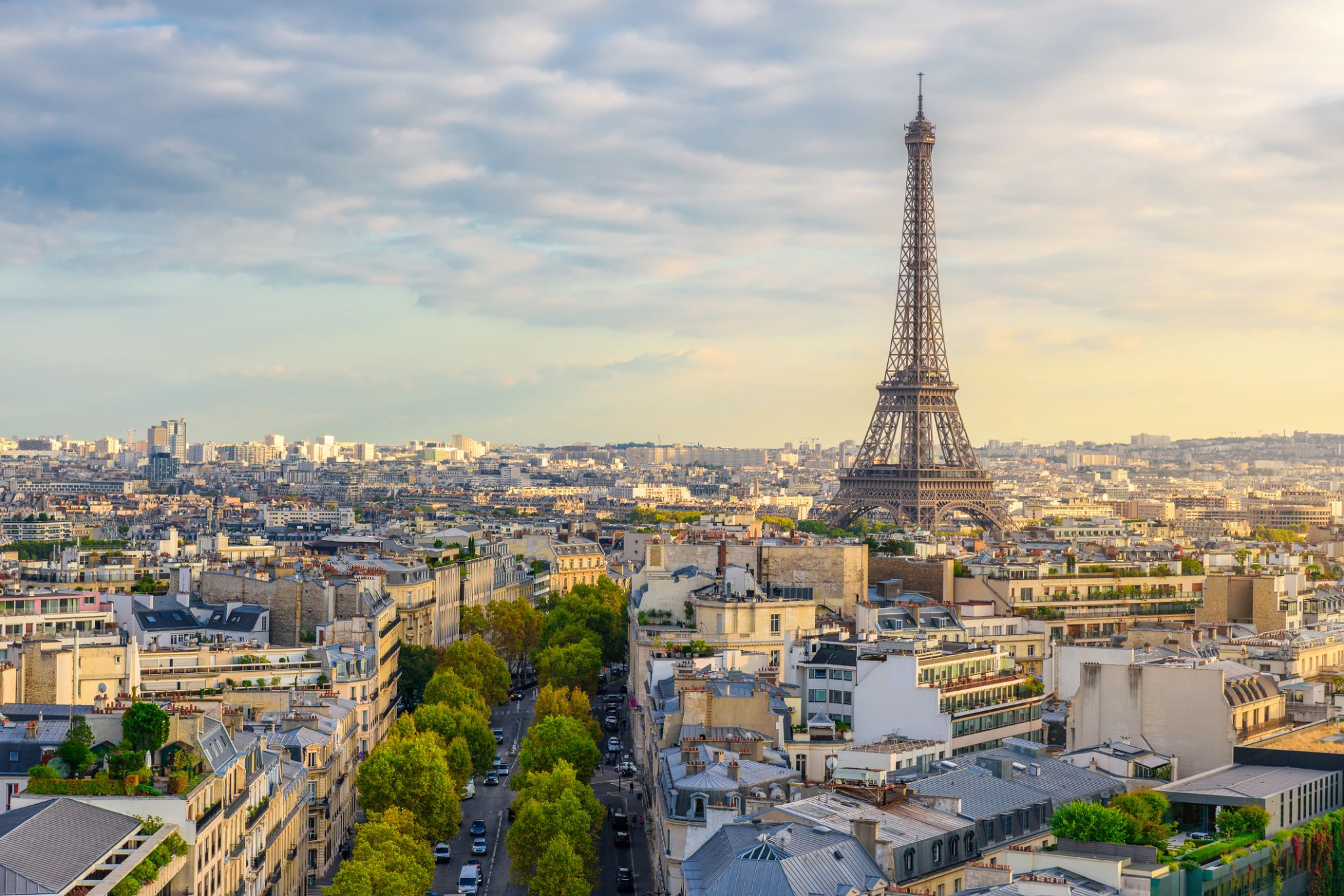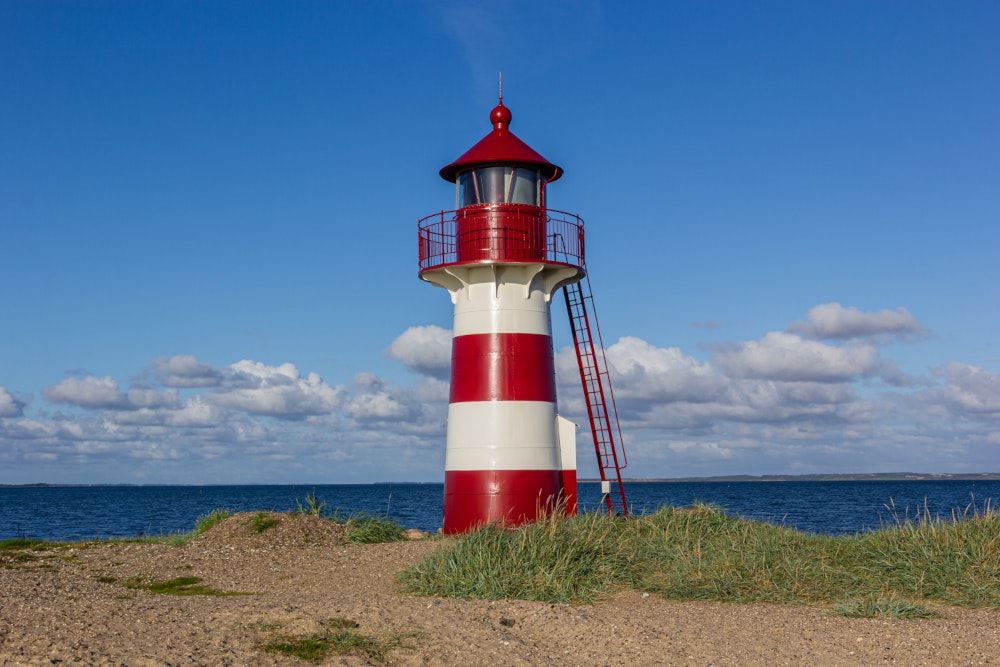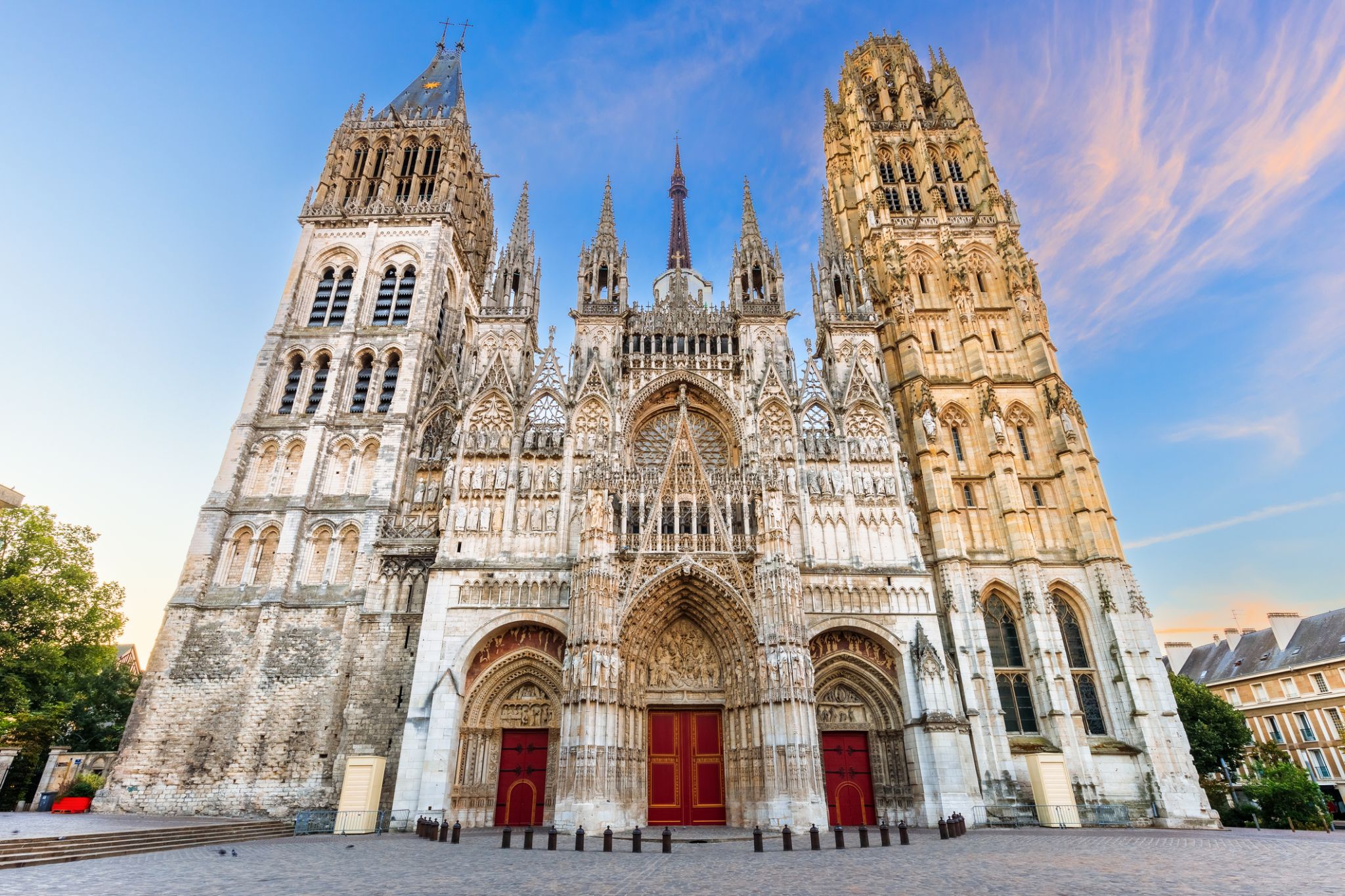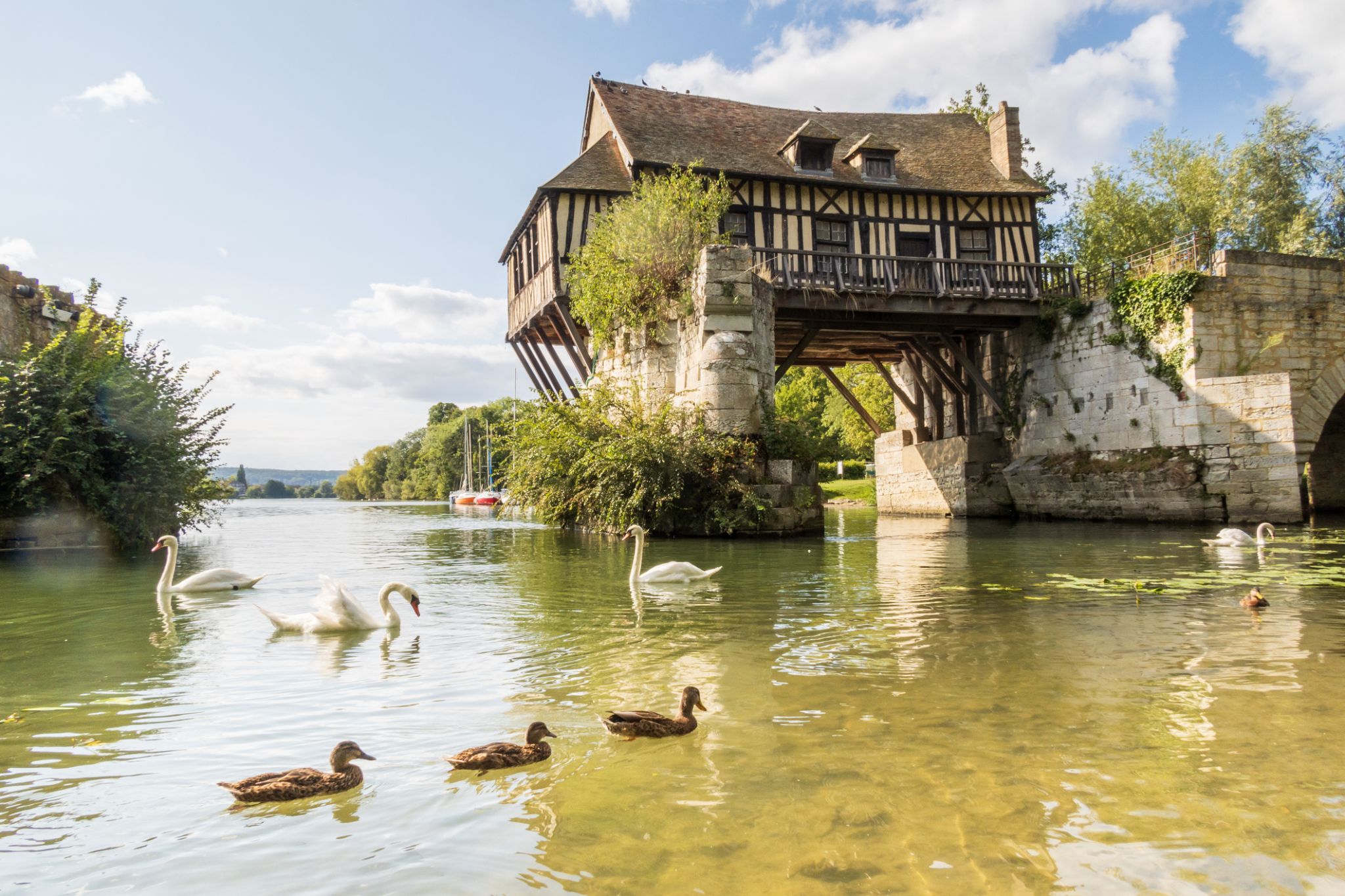

| Firma : Uniworld |
| Statek : S.S. Joie de Vivre |
| Data rozpoczęcia : śr. 09 gru 2026 |
| Data zakończenia : śr. 16 gru 2026 |
| Liczba nocy : 7 nocy |
| Dzień | Data | Port |
|---|---|---|
| 1 | 9.12 śr. | Paryż / Francja |
| 2 | 10.12 czw. | Paryż / Francja |
| 3 | 11.12 pt. | |
| 4 | 12.12 sob. | Rouen / Francja |
| 5 | 13.12 niedz. | Caudebec-en-Caux / Francja |
| 6 | 14.12 pon. | Vernon / Francja |
| 7 | 15.12 wt. | Paryż / Francja |
| 8 | 16.12 śr. | Paryż / Francja |
POSIŁKI
- Wszystkie posiłki na pokładzie przygotowywane są z najlepszych, najświeższych składników
- Powitalne i pożegnalne przyjęcia kapitana
- Powitalne i pożegnalne uroczyste kolacje
- Nielimitowane napoje na pokładzie, w tym wykwintne wina, piwa, alkohole, kawy i herbaty specjalne, napoje bezalkoholowe i woda mineralna
WYCIECZKI
- Wycieczki z przewodnikiem z lokalnymi anglojęzycznymi ekspertami
- Programy Let’s Go i Day in the Country z przewodnikiem
- Najnowocześniejszy przenośny system nagłośnienia Quietvox na wszystkich wycieczkach
- Możliwość korzystania z rowerów i kijków do nordic walking
ZAKWATEROWANIE
- Rejs w kabinie z widokiem na rzekę na luksusowym statku
- Eleganckie kabiny i apartamenty z widokiem na rzekę wyposażone są w ręcznie robione łóżka Savoir® (Anglia), delikatną pościel ze 100% egipskiej bawełny z wysokiej jakości europejskimi kołdrami i wybór poduszek
- Bezpłatny Wi-Fi
- Usługi doświadczonego kierownika rejsów Uniworld
- Programy kulturalne, w tym ekscytujące występy lokalnych artystów na pokładzie
- Napiwki dla personelu (załogi, pracowników, kierownika rejsu/wycieczki) są wliczone w cenę
Rezerwacje i płatności
W momencie rezerwacji wymagany jest depozyt w wysokości co najmniej 10% ceny rejsu (rejs plus opłata portowa plus opłaty za przedłużenie rejsu przed i/lub po rejsie, pomniejszony o obowiązujące zniżki) od osoby. Ostateczna płatność musi zostać dokonana co najmniej 120 dni przed wypłynięciem. W przypadku nowych rezerwacji dopuszczalne jest 72-godzinne wstrzymanie płatności,
ale nie może ono przekroczyć terminu płatności ostatecznej. W przypadku rezerwacji dokonanych na 120 dni przed wypłynięciem, pełna płatność musi zostać uiszczona w momencie rezerwacji.
Rezerwacje zostaną anulowane, jeśli płatności nie zostaną otrzymane w terminie.
Powiadomienie o anulowaniu otrzymane przed
Data rozpoczęcia rejsu
Opłaty za anulowanie za osobę
• 120 dni lub więcej 200 USD za osobę za rejs*
• 119–90 dni 20% ceny biletu **
• 89–60 dni 35% ceny biletu **
• 59–30 dni 50% ceny biletu **
• Niestawienie się 100% ceny biletu **
• Mniej niż 30 dni 100% ceny biletu **
**Cena biletu oznacza koszt dowolnego elementu rejsu lub lądu zakupionego od
Uniworld.
W przypadku anulowania lotu na sto dziewiętnaście (119) dni przed wylotem lub
wcześniej, pełna cena biletu nie podlega zwrotowi. Szczegóły można znaleźć w sekcji „Anulowanie lotu”.
Te opłaty za anulowanie stanowią dodatek do wszelkich opłat za anulowanie, które mogą zostać
naliczone przez agenta podróży. Nie przysługuje zwrot pieniędzy za niewykorzystane usługi ani za niewykorzystane części podróży.

the capital of France, on the Seine River; population 2,203,817 (2006). Paris was held by the Romans, who called it Lutetia, and by the Franks, and was established as the capital in 987 under Hugh Capet. It was organized into three parts—the Île de la Cité (an island in the Seine), the Right Bank, and the Left Bank—during the reign of Philippe-Auguste 1180–1223. The city's neoclassical architecture dates from the modernization of the Napoleonic era, which continued under Napoleon III, when the bridges and boulevards of the modern city were built.

the capital of France, on the Seine River; population 2,203,817 (2006). Paris was held by the Romans, who called it Lutetia, and by the Franks, and was established as the capital in 987 under Hugh Capet. It was organized into three parts—the Île de la Cité (an island in the Seine), the Right Bank, and the Left Bank—during the reign of Philippe-Auguste 1180–1223. The city's neoclassical architecture dates from the modernization of the Napoleonic era, which continued under Napoleon III, when the bridges and boulevards of the modern city were built.


Rouen jest miastem nad Sekwaną w północnej Francji. Jest stolicą regionu Normandia. Niegdyś jedno z największych i najbogatszych miast średniowiecznej Europy, Rouen było siedzibą Skarbu Normandii w średniowieczu. Było jedną ze stolic dynastii anglonormańskich, które rządziły Anglią i znacznymi częściami współczesnej Francji od XI do XV wieku.
Populacja obszaru metropolitalnego (po francusku: agglomération) według spisu z 2011 roku wynosiła 655 013, a szacunkowa populacja samego miasta to 111 557. Mieszkańcy Rouen są znani jako Rouennais.


Vernon to niewielkie francuskie miasto liczące 25 tysięcy mieszkańców, położone w departamencie Eure, który wchodzi w skład regionu Górna Normandia.
Vernon jest starożytnym miastem. Przez całe swoje istnienie odgrywało strategiczne role i było świadkiem licznych bitew. W czasie II wojny światowej Vernon zostało doszczętnie zniszczone, ale odbudowano je dosłownie z ruin. Najbardziej znanym zabytkiem Vernon jest Stary Młyn. Jest to drewniano-ceglana konstrukcja, która opiera się na dwóch filarach starego zniszczonego mostu na Sekwanie. Most został zbudowany w XII wieku, a młyn pochodzi z około XVI wieku.

the capital of France, on the Seine River; population 2,203,817 (2006). Paris was held by the Romans, who called it Lutetia, and by the Franks, and was established as the capital in 987 under Hugh Capet. It was organized into three parts—the Île de la Cité (an island in the Seine), the Right Bank, and the Left Bank—during the reign of Philippe-Auguste 1180–1223. The city's neoclassical architecture dates from the modernization of the Napoleonic era, which continued under Napoleon III, when the bridges and boulevards of the modern city were built.

the capital of France, on the Seine River; population 2,203,817 (2006). Paris was held by the Romans, who called it Lutetia, and by the Franks, and was established as the capital in 987 under Hugh Capet. It was organized into three parts—the Île de la Cité (an island in the Seine), the Right Bank, and the Left Bank—during the reign of Philippe-Auguste 1180–1223. The city's neoclassical architecture dates from the modernization of the Napoleonic era, which continued under Napoleon III, when the bridges and boulevards of the modern city were built.